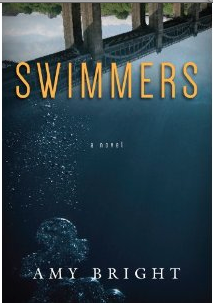Nicola Yoon’s Everything, Everything focuses on eighteen-year-old Madeline Whittier. She has severe
combined immunodeficiency (SCIDS, for short. She describes herself as being on SCID row), meaning she is allergic to the outside world. The
house she shares with her mother and her nurse is her entire world, and an
illustration that depicts her as an astronaut floating above the earth (81) is
one of the most affecting in the novel. Everything, Everything is illustrated by Yoon's husband, David Yoon, who creates hand drawn illustrations of various size throughout the novel. The novel also includes graphs that chart her
hourly breaths per minute, IM transcripts, website screenshots, and
ticket stubs.
When new neighbours move in next door to Madeline's house, she begins to want more than her small world provides her with. This is specifically influenced by her neighbour Olly, a teenage boy her age who teaches her that life is more than what she can read about in books. Madeline reads often and reads widely. Because she is homeschooled, her reading list is mostly self-selected. Yet, she still chooses to read the types of books that we would define as canonical, including titles such as William Golding’s The Lord of the Flies, Lewis Carroll’s Alice’s Adventures in Wonderland, Daniel Keyes’s Flowers for Algernon, Ralph Ellison’s Invisible Man, Albert Camus’s The Stranger, Samuel Beckett’s Waiting for Godot, and Nausea by Jean-Paul Sartre. She writes short, one-sentence reviews of these books under the caption “Life is Short: Spoiler Reviews by Madeline,” which reviews Invisible Man as “Spoiler Alert: You don’t exist if no one can see you” (246). Like in Stephen Chbosky's The Perks of Being a Wallflower and Jon van de Ruit's Spud, the books she reads (and her interpretations of them) mirror events in her life, and provide her with a literary lens through which to interpret her experiences.
The text itself also engages with a different kind of focus on
graphics and images, one less explicit that that provided by David Yoon's illustrations. This occurs specifically when Madeline describes the silence between
her and Olly in the following way: “We are awkward together for a few moments
unsure what to say. The silence would be much less noticeable over IM. We could
chalk it up to any number of distractions. But right now, in real life, it
feels like we both have blank thought balloons over our heads” (73).
Everything, Everything follows Madeline's self-discovery, and especially her journey to live her life to its fullest .









